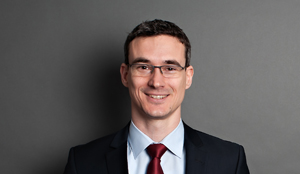Baltic LNG and gas update
The Baltic LNG and Gas Forum took place in Klaipéda, Lithuania on 7-8 June 2023 with a program packed with presentations and discussions about the energy independence of the Baltic region, market developments, trading and pricing of natural gas and LNG as well as energy transition and decarbonization. I had the privilege of speaking in a panel on the first day and chairing the second day of the conference and here below would like to share my experience and take-aways – if I may, from a strictly subjective point of view.
The Baltic region adapted very quickly to the need to become independent following the start of the war in Ukraine. LNG and the Klaipéda FSRU LNG terminal, regional cooperation especially the Baltic connector and GIPL as well as the development and industrial scale roll-out of alternative fuels all played a role in this transition. It seemed to be a general comment from the industry that regulation needs to catch-up with the technologies and advancements of the sector and stakeholders.
Price volatility is here to stay in the Baltics as was the general perception of the panel participants on gas trade. The development of interconnectors and efficiency enhancements of naval transport both contribute significantly to combatting the challenges of sourcing gas. We heard fascinating updates regarding the recently opened Inkoo Terminal in Finland, the developments of the Klaipéda LNG Terminal as well as the Gdansk FSRU project, which all seem to be thriving under the current circumstances. Further, there are opportunities still to be explored in OTC trade, which, combined with good interconnectivity, could create more transparency and liquidity on the natural gas market.
Hydrogen, CCUS and biomethane were probably the three most often mentioned – and one therefore assumes – contemplated alternatives to natural gas and LNG in the Baltics. We saw absolutely captivating presentations of technologies being scaled-up to industrial use and operation, including LNG and CNG filling stations, and the use of biomethane. Perhaps the most advanced of the alternatives is hydrogen with projects presented for mixing hydrogen with natural gas, repurposing the natural gas pipelines for transport of hydrogen and the use of green and blue hydrogen for transportation, which falls very much in line with the conclusions of Bird & Bird’s hydrogen report.
Renewable electricity generation is not only an important input for hydrogen production, but also contributes to the overall energy independency of the Baltic region as well as the green transition of oil & gas companies. My perception was that offshore wind is the prime opportunity still to be further explored and exploited in the Baltic region.
The Forum concluded with an exciting, and thanks to the wonderful weather and the hospitality of Klaiépdos Nafta, also very pleasant, boat trip around the Klaipéda FSRU.
It was great to meet the wide variety of people at the Forum and engage in in-depth discussions with professionals during the many networking opportunities the Forum provided.
Hope to see you in Klaipéda next year!



